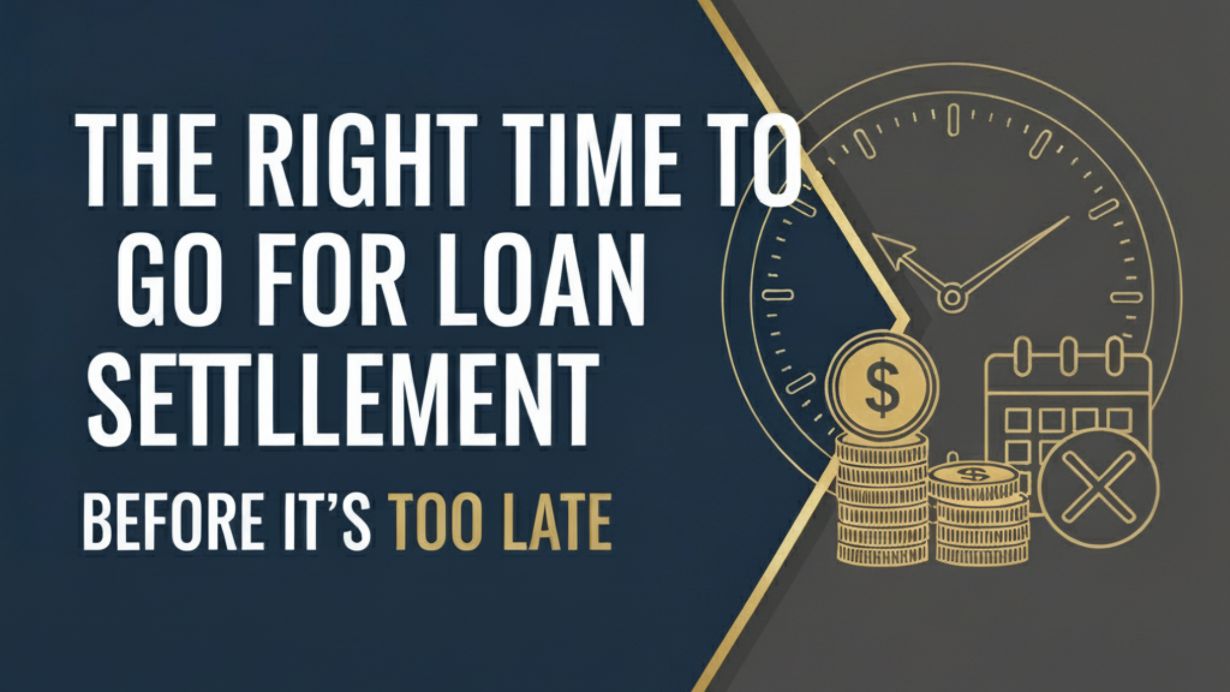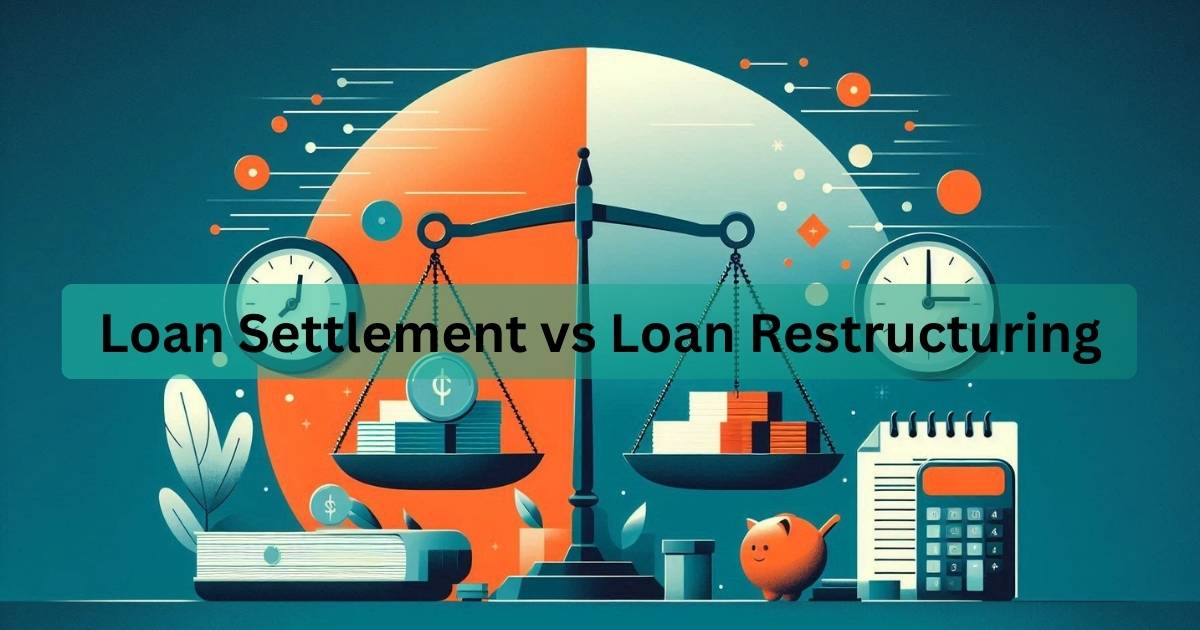· Loan Settlement · 5 min read
The Right Time to Go for Loan Settlement | Expert Guide
Know when to go for a loan settlement before it’s too late. Learn the right timing, process, and how loan settlement companies help you avoid legal trouble.

Many people take loans to handle big expenses — like buying a house, car, or starting a business. But sometimes, due to job loss, health problems, or business loss, repaying the loan becomes very difficult.
That’s when the idea of loan settlement comes in. But most people don’t know when the right time is to go for it.
Most borrowers wait until banks send legal notices or recovery agents start calling. By then, your credit score is already damaged, and your options are limited.
This blog explains the right time for loan settlement, how the process works, and how a loan settlement company can help you manage it smoothly and legally.
What Is Loan Settlement?
Loan settlement means agreeing with your bank or lender to pay a reduced amount to close your loan when you cannot repay the full amount.
This usually happens due to:
Job loss or salary reduction
Business loss
Medical or family emergencies
Heavy debt from multiple loans
A loan settlement company helps you communicate with banks, explain your genuine situation, and negotiate for the best possible amount.
The Right Time to Go for Loan Settlement
Timing plays a major role in settlement. If you act early, banks are more willing to cooperate.
Here are the stages that help you decide when to go for settlement:
- When You Have Missed 2–3 EMIs and See No Recovery
If you’ve missed 2–3 EMIs and your financial situation isn’t improving, this is the ideal stage to start the discussion. Banks prefer recovering money through negotiation instead of marking your loan as default.
A loan settlement company can represent you and help explain your financial hardship to the bank in a professional way.
- Before Your Loan Becomes an NPA
A loan becomes an NPA (Non-Performing Asset) when you don’t pay EMIs for more than 90 days. Once it turns NPA, your credit score drops badly, and banks become less flexible. If you start the settlement before this happens, your chances of a better offer increase.
- When Recovery or Legal Action Is About to Begin
If you have started receiving reminder calls or legal notices, it means the bank is moving towards legal recovery.
At this point, a loan settlement company can help stop the process by handling communication and arranging a settlement before the matter reaches court.
- When You Have No Other Financial Option Left
If you have already tried all possible options — such as loan restructuring, EMI extension, or top-up loan — and still cannot manage repayments, settlement becomes a practical step. It helps you close your debt and start again without long-term stress.
- How a Loan Settlement Company Helps You
Dealing directly with banks can be stressful and confusing. A loan settlement company helps you at every step:
Negotiation Support: Talks with the bank on your behalf for a better settlement amount.
Documentation: Ensures all agreements are written and legally valid.
Protection from Recovery Agents: Handles communication professionally to prevent harassment.
Peace of Mind: You get expert help while you focus on rebuilding your finances.
These companies understand how lenders operate and make sure you get a fair deal without legal complications.
What Happens After Loan Settlement
Once you make the agreed payment, the bank:
Closes your loan account.
Provides a “No Dues” or “Settlement Letter.”
Updates your credit report as “Settled”, not “Closed.”
Note: A “settled” status may reduce your credit score, but not as badly as a complete default. With time and regular payments on future loans or credit cards, you can rebuild your score.
Mistakes to Avoid During Loan Settlement
To make sure the process is safe and smooth, avoid these mistakes:
Ignoring bank messages or delaying response.
Settling without getting a written agreement.
Paying in cash without a proper receipt.
Not taking guidance from a loan settlement expert.
Always keep written proof of your discussions and payments.
Benefits of Settling Your Loan on Time
When done at the right time, loan settlement helps you take control of your financial life.
Key benefits include:
Freedom from regular EMI stress.
Avoiding legal or recovery actions.
Reduced debt burden and better mental peace.
Opportunity to rebuild your credit profile faster.
A clear path to financial recovery.
Conclusion
Loan settlement is not a failure — it’s a smart financial decision when your situation doesn’t allow full repayment.
The earlier you act, the better your chances of saving your credit score and avoiding legal pressure.
If you’re struggling with EMIs or facing calls from recovery agents, contact a trusted loan settlement company to guide you. They can help you close your debts peacefully and plan a stable financial future.
Act before it’s too late — take control of your finances today.
Frequently Asked Questions (FAQs)
Q1. Will a loan settlement affect my credit score?
Yes, but the impact is smaller than a loan default. You can rebuild your credit by paying future bills on time.
Q2. Can I get another loan after the settlement?
Yes, after some time. Once your score improves, you can apply for new credit with better chances of approval.
Q3. Is it better to hire a loan settlement company or deal directly with the bank?
A loan settlement company makes the process easier, handles communication, and negotiates better terms on your behalf.
Q4. Can I also settle my credit card dues?
Yes. Banks offer credit card settlement options for genuine financial hardship cases.
Disclaimer
The information shared in this blog is for general awareness only. Every individual’s situation may differ, and the actual process or outcome can vary based on personal and legal circumstances.

 (1).BBangNKS.jpg)

